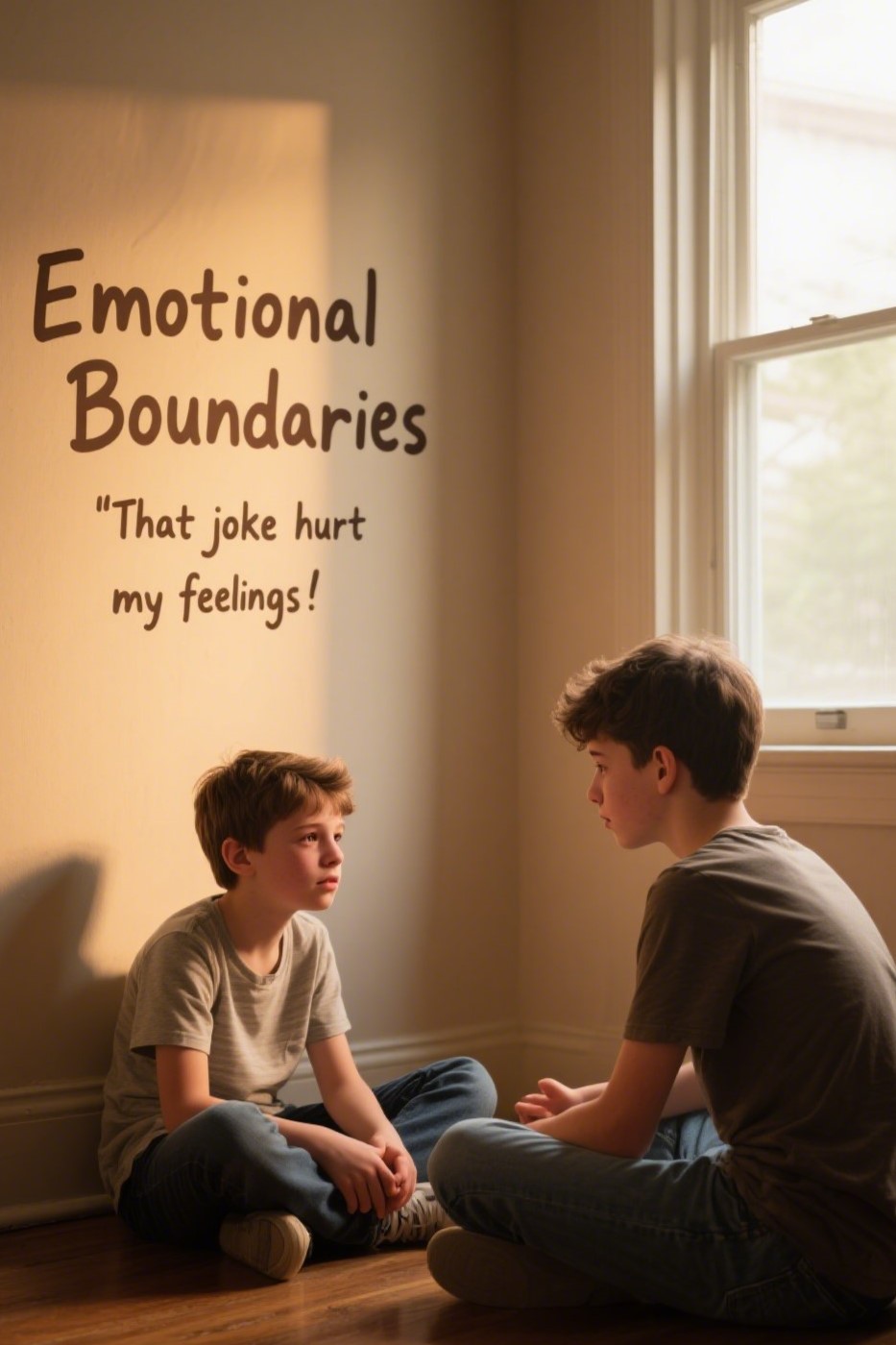Turning 13 is like opening the first chapter of your own adventure novel. You’re not a little kid anymore, but you’re also not quite an adult. It’s the age of in-betweens—of discovering who you are, what matters to you, and what kind of space you need to grow safely and confidently.
And that’s where boundaries come in.
Think of boundaries as the invisible fences that protect your time, your energy, your emotions, and your body. They help you say yes to the right things and no to the things that don’t serve you. Boundaries aren’t about shutting people out—they’re about letting the right people in and protecting the version of yourself you’re still building.
So… what boundaries should a 13-year-old have?
Let’s explore the healthy, empowering limits every teen deserves.
👤 1. Personal Space Boundaries

You’re allowed to have your own space—physically and emotionally.
At 13, your body is changing, your mind is growing, and sometimes, you just need some alone time. That’s normal. You should be able to say:
- “I need some time to myself.”
- “Please knock before entering my room.”
- “I don’t feel like talking right now.”
Why it matters: Learning to honor your own space teaches others to respect it too—and helps you recharge without guilt.
💬 2. Emotional Boundaries

You don’t have to take on everyone else’s problems or hide how you feel.
It’s okay to say:
- “I don’t feel comfortable sharing that.”
- “That joke hurt my feelings.”
- “I need to talk to someone about this.”
Why it matters: Teens often feel pressure to keep the peace or blend in. Emotional boundaries help you express your feelings without apology and recognize when someone else is crossing a line.
📱 3. Digital Boundaries

You’re growing up in the most connected generation ever—but more screen time doesn’t mean fewer limits.
Some important boundaries might include:
- Turning off your phone during family meals, school, or bedtime.
- Not sharing personal photos or private information online.
- Choosing who you accept friend requests or messages from.
Why it matters: Boundaries in the digital world keep you safe, focused, and free from unnecessary stress or comparison.
🧍 4. Body Boundaries

Your body belongs to you—always.
That means you can say:
- “I don’t want to be hugged or touched right now.”
- “That makes me uncomfortable.”
- “I need to talk to an adult I trust.”
Why it matters: This is one of the most important boundaries a 13-year-old can have. Understanding body autonomy early helps you build self-respect and recognize when something isn’t right.
⏳ 5. Time and Energy Boundaries

Yes, you’re young—but your time and energy are still valuable.
That means learning to:
- Say “no” when you’re overwhelmed.
- Make time for rest, hobbies, and passions.
- Balance schoolwork with fun and family.
Why it matters: Teens are often pulled in a million directions. Knowing your limits helps you avoid burnout and stay true to what’s important.
🤝 6. Friendship Boundaries

Not all friendships are healthy—and that’s okay to admit.
You’re allowed to have boundaries like:
- “I don’t want to talk about people behind their backs.”
- “Don’t pressure me into doing things I’m uncomfortable with.”
- “I need space from this friendship right now.”
Why it matters: Good friendships support your growth. Boundaries help you spot the difference between a real friend and someone who’s just draining your energy.
💡 So, How Do You Set These Boundaries?
Here’s the secret: setting boundaries isn’t about being rude. It’s about being clear.
- Speak up calmly. You don’t need to yell—just be honest and direct.
- Be consistent. Repeating your boundary helps people take it seriously.
- Ask for support. Talk to a trusted adult if you’re struggling to set or keep a boundary.
🌱 Final Thoughts: Boundaries Are Bridges, Not Walls
At 13, you’re just starting to step into your own power. Boundaries don’t limit your freedom—they protect it. They help you become the person you’re meant to be without getting lost in who others want you to be.
So speak up. Stand tall. And remember: you deserve to feel safe, respected, and heard.
Because becoming a teenager doesn’t mean giving up your voice—it means learning how to use it with strength and kindness. 🧠💪💬
Boundaries aren’t just lines—they’re self-love in action. And every 13-year-old deserves that kind of love.





